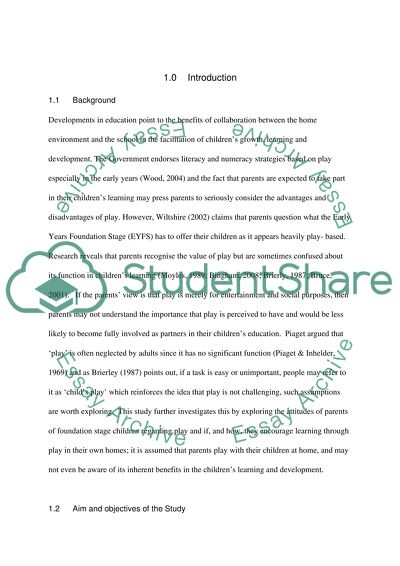Retrieved from https://studentshare.org/sociology/1395126-parents-views-on-play-in-the-education-of-young-children-in-the-foundation-stage
https://studentshare.org/sociology/1395126-parents-views-on-play-in-the-education-of-young-children-in-the-foundation-stage.


